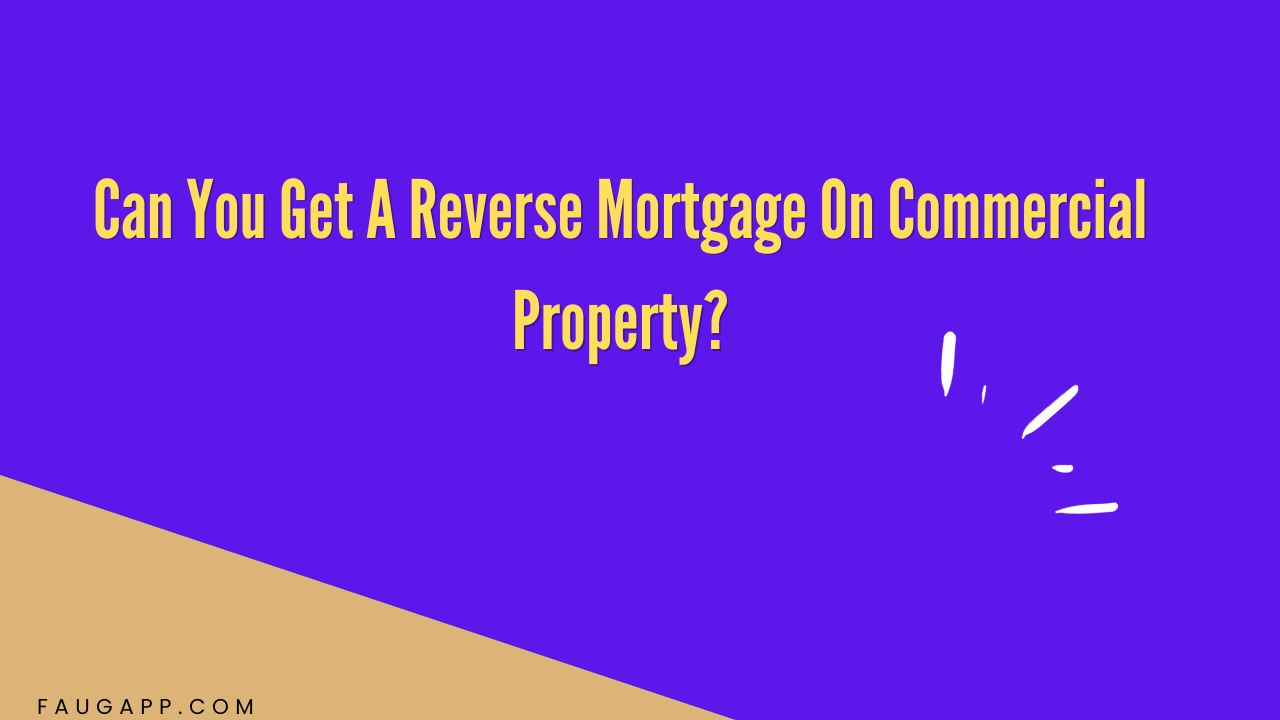In the world of real estate and mortgages, the concept of a reverse mortgage is not unfamiliar. It’s a financial tool that allows homeowners, typically retirees, to convert part of their home equity into cash without selling their property. But what about commercial property owners? Can they also benefit from a reverse mortgage? In this comprehensive guide, we will explore the intricacies of reverse mortgages on commercial properties, shedding light on the possibilities, eligibility criteria, and key considerations. Let’s dive right in.
Understanding Reverse Mortgages
Before delving into the realm of commercial property, let’s grasp the basics of reverse mortgages. In essence, a reverse mortgage is a loan that allows homeowners to access a portion of their home equity as cash. Unlike traditional mortgages where you make monthly payments, in a reverse mortgage, the lender makes payments to you. This arrangement is particularly attractive for seniors who have substantial equity in their homes and wish to supplement their retirement income without selling their property.
The Limitations of Traditional Reverse Mortgages
While reverse mortgages have been primarily designed for residential properties, they have limitations when it comes to commercial properties. Traditional reverse mortgages are typically available for single-family homes, condominiums, and certain types of multi-unit properties. They are not intended for purely commercial properties like office buildings, retail spaces, or industrial complexes.
Commercial Property Eligibility
Now, let’s address the burning question: Can you get a reverse mortgage on commercial property? The short answer is yes but with some important caveats. There are specialized reverse mortgage products tailored for commercial property owners, but eligibility requirements can be more stringent compared to residential reverse mortgages.
Mixed-Use Properties
One common scenario where commercial property owners can explore reverse mortgages is when the property has a mixed-use component. If the property includes both commercial and residential units, it might be eligible for a reverse mortgage, provided that the residential component meets the criteria for traditional reverse mortgages.
Owner-Occupied Properties
In some cases, if you own a commercial property and also live on the premises, you may qualify for a reverse mortgage. However, this typically applies to situations where the owner’s residence is a part of the commercial property, such as a live-work space.
Small Business Owners
Small business owners who operate their businesses from a commercial property they own may be eligible for a reverse mortgage. This can be particularly beneficial for entrepreneurs looking to access additional funds for retirement.
Key Considerations
Before diving into a reverse mortgage for your commercial property, there are several important factors to consider:
Property Valuation
The amount you can borrow through a reverse mortgage is heavily dependent on the appraised value of your property. Commercial properties are often valued differently than residential ones, and the appraisal process can be more complex.
Financial Assessment
Lenders will conduct a financial assessment to determine your ability to meet property-related expenses such as taxes and insurance. This assessment is critical in determining your eligibility for a reverse mortgage.
Repayment Terms
Unlike traditional mortgages, reverse mortgages do not require monthly payments. However, the loan must be repaid when you sell the property or no longer use it as your primary residence. This can impact your long-term financial planning.
Impact on Heirs
It’s important to understand how a reverse mortgage may affect your heirs’ inheritance. The loan balance, including interest, must be repaid when the property is sold, potentially reducing the assets left to your heirs.
Conclusion:
while traditional reverse mortgages are primarily designed for residential properties, there are options available for commercial property owners. These specialized reverse mortgage products can provide additional financial flexibility for small business owners and those living in mixed-use properties. However, eligibility criteria and considerations differ from traditional reverse mortgages, making it essential to consult with a financial advisor and thoroughly assess the implications before proceeding.
FAQs
Can I get a reverse mortgage on a purely commercial property?
No, traditional reverse mortgages are not available for purely commercial properties. However, there are options if your property has a mixed-use component or if you live on the premises.
How is the value of a commercial property determined for a reverse mortgage?
The valuation of a commercial property for a reverse mortgage can be more complex than that of a residential property. It often involves a detailed appraisal process.
What happens if I can no longer use the commercial property as my primary residence?
If you can no longer use the property as your primary residence, the reverse mortgage must be repaid. This can occur when you sell the property or when it is no longer your primary place of residence.
Will a reverse mortgage on my commercial property affect my heirs’ inheritance?
Yes, a reverse mortgage can impact the inheritance you leave to your heirs. The loan balance, including interest, must be repaid when the property is sold, potentially reducing the assets available for inheritance.
Should I consult with a financial advisor before considering a reverse mortgage on my commercial property?
Absolutely. Given the complexities and implications of reverse mortgages on commercial properties, it’s crucial to consult with a financial advisor who specializes in this area to make informed decisions about your financial future.
